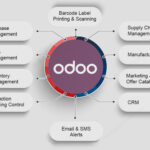The Challenge of Bridging the gap
Bridging the gap between their ideas and your ideas is important for a good working relationship. Being the manager is not about being right or about pushing your views on others. The workplace is full of people with varying skills having idea on how tasks should be done. Efficiently managing conflicting ideas takes patience and understanding. A good manager also knows how to skillfully stop conflicts between their employees and get everyone to work as a team.
Communication is Key
Communication is the way to success. This statement is true for leaders in the workplace. The Society of Human Resource Management takes a yearly survey to find out just how happy employees really are in their work. Most employees answer the same way, the people are fine, and the work is fine but lacks communication with the leader. Almost 57% of the participants of this study suggest that communication with their senior leader is very important. Employees fear to talk to their employers about problems that come up; they are terrified just knocking on that office door. Having an open-door policy is a better way to start making your staff feel comfortable in coming to you with ideas.
Have Regular Staff Meetings
Another way to increase communication is to conduct regular staff meetings. Have the managers keep the staff informed of the aim of the office or upcoming projects. Let the team share what projects they are working on and ask any questions for which they need answers. The best approach to build this communication bridge is to go out into the office and stop by their desks, have a small talk, and take an interest in them as a person. Dealing with someone equally, and recognizing their achievements, goes a long way in influencing them to work harder.
Manage Conflict Between Employees
One among the main things is managing conflict between your team, or solving a conflict of ideas between you and the employee. When there is a fuss between employees trying to listen instead of dictating. Rather than just arguing your side, try listening to their side. Permit them to open up and talk to you freely. A manager who can listen to the employee’s point of view and take it to concern will generate much more cooperation than a manager who demands or instils fear.
Trust
Last but not least is trust. Lastly, trust is the pillar of respect and respect is the cornerstone to building a successful team-manager relationship. Becoming open and honest with your team members will make them feel respected. As a result, they will be open, honest and respectful to you.
These aren’t the be-all and end-all of good manager traits or team traits, but they are a good starting point.






